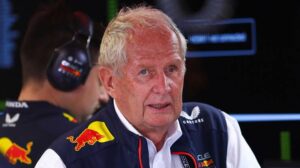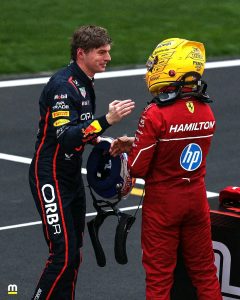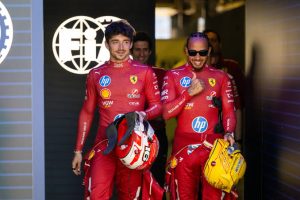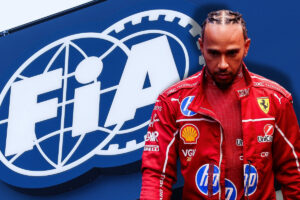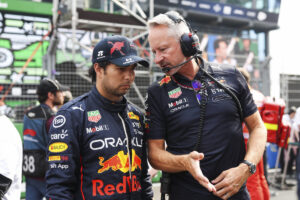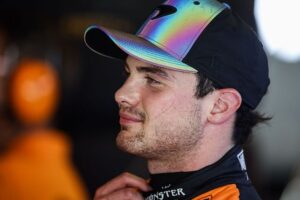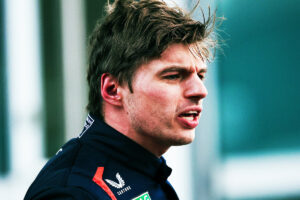Breaking news:Daniel Ricciardo theory shared as Lewis Hamilton could be…. Read more
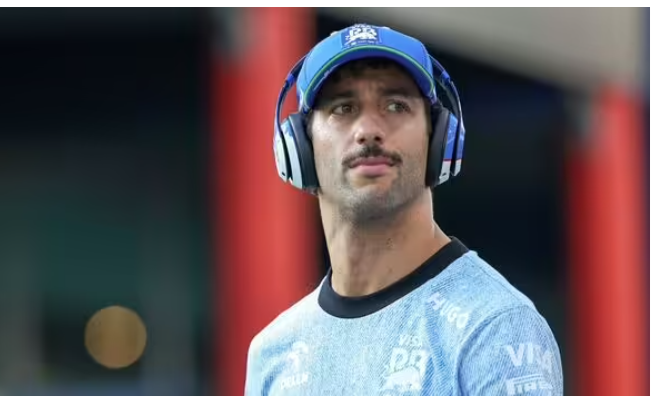
Daniel Ricciardo theory shared as Lewis Hamilton could be impacted at Ferrari
Anthony Davidson has recently expressed his views on Daniel Ricciardo’s decline in performance, attributing part of it to the Australian driver’s struggles with adapting to significant changes in car technology. Davidson’s insights resonate in the context of how Formula One has evolved dramatically in recent years, particularly with the introduction of new ground-effect aerodynamic designs in 2022.
Ricciardo, once celebrated as one of the sport’s most talented drivers, faced challenges during his time at McLaren, culminating in his departure from the team two years into a three-year contract. This exit has effectively put an end to his prospects of competing at the highest levels of motorsport. Davidson believes that Ricciardo’s difficulties can be partially linked to his long history in Formula One, where he has witnessed various transformations in car design and performance characteristics.
In a conversation on the Sky Sports F1 podcast, Davidson elaborated on how the evolving nature of Formula One cars impacts drivers who have experienced a range of vehicle dynamics throughout their careers. He pointed out that contemporary cars lack the same grip levels and require a different driving approach compared to older models. This shift can create a disconnect for seasoned drivers who find it challenging to adjust their driving style to meet the demands of the newer machines.
Davidson reflected on his own experiences, mentioning how the first car he drove, a Super Aguri, set a benchmark that he has always compared other vehicles against. This notion of being “spoiled” by a certain type of car performance can lead drivers to have unrealistic expectations when adapting to newer, less familiar models. Ricciardo is currently facing this dilemma, as the cars he is now piloting do not deliver the same exhilarating performance he experienced earlier in his career.
Moreover, Davidson suggested that other accomplished drivers, such as Lewis Hamilton and Fernando Alonso, might share similar concerns. Both Hamilton and Alonso have enjoyed significant success in superior machinery in the past, making it harder for them to reconcile their current experiences with the cars they now drive. With regulations evolving, the performance envelope has shifted, and drivers who were once at the pinnacle of the sport may find themselves struggling to keep pace.
Interestingly, Davidson contrasted the experiences of established drivers with those of newcomers to the sport. Young drivers stepping up from Formula 2 enter Formula One with fresh perspectives, viewing the current cars as the pinnacle of performance. For them, this is the best car they’ve ever driven, free from the biases of past experiences. This stark difference in perception can influence performance dynamics, as young drivers adapt more seamlessly to the evolving technologies.
Hamilton himself has faced consistency issues in recent seasons. His two victories this year marked his first since 2021, highlighting the difficulties faced by Mercedes in providing him with a competitive car. As he prepares for a transition to Ferrari next season, the question looms: can he secure an eighth World Drivers’ Championship?
Davidson’s analysis presents a compelling narrative about the challenges faced by veteran drivers like Ricciardo, Hamilton, and Alonso amid a landscape of rapid technological advancement in Formula One. It underscores the importance of adaptability in a sport where performance is continually evolving, and the psychological impact of past successes can create hurdles for drivers in their quest to remain competitive.
As the new generation of drivers continues to make their mark, the contrasting experiences serve as a reminder of how critical it is to embrace change in a sport that is as much about technological prowess as it is about driving skill. With the arrival of younger talent and the ongoing evolution of car design, the future of Formula One promises to be as dynamic and challenging as ever, leaving seasoned veterans to navigate their own paths amid shifting landscapes.

